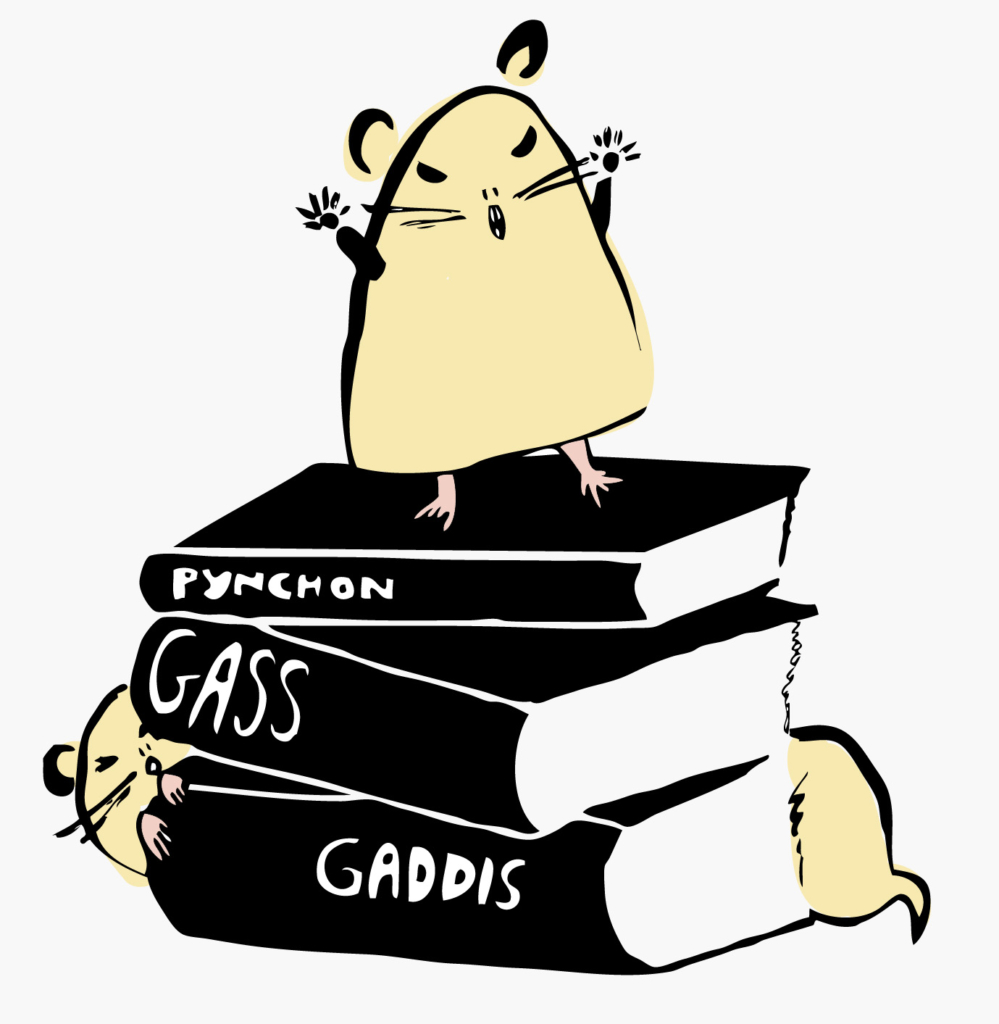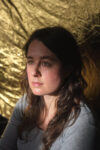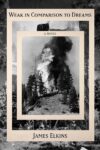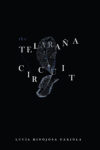This piece originally appeared in the first Full Stop Quarterly. The Quarterly is available to download or subscribe here.
A great work of fiction defines its terms of engagement. Some books lay themselves out lazily, letting readers enjoy however they like — but in doing so, these books lose the chance to set the boundaries of that enjoyment, or to redefine what enjoyment might mean. There’s a price to be paid for such single-mindedness, of course; by defining the terms of readerly engagement, a great book makes itself a little difficult. It refuses to be flexible, to meet its reader halfway — and yet this difficulty is what distinguishes it, what makes us want to spend time with it in the first place.
Most of us enjoy perfectly serviceable literature. Good novels make up the larger part of our reading life — if we’re lucky — and it takes a particular and atypical sort of personality to continually privilege confusion over clarity, to deny our most obvious instincts in the service of rarified aestheticism. We can’t all exist on the precipice of starvation, waiting for our next experience with the sublime. Everyday satisfaction is the prevailing pleasure of our existence.
Still, there is an uncommon pleasure in surrendering to an author more interested in redefining the scope of a literary experience than in satisfying our expectations. We want occasionally to pass through doubt and confusion, adventuresome readers that we are, into an appreciation for that which we might not have appreciated before. This distinction matters; the ability to define the terms of engagement with the reader is the difference between a great novel and a merely good one.
This experience of genuine surprise is rarer than one might think. Many novels that first appear intellectual and abstruse, dangerously difficult, are ultimately about as distinctive and unexpected as a well-constructed spy thriller. Courting an audience, authors use the forms they know. A writer in thrall to Gaddis writes so that fellow Gaddis-lovers will recognize his brilliance, and the woman who would be Alan Furst borrows his themes and attitudes to snare his readers: the cynicism, the eye for world politics, a character’s compromised interior.
To write an original book is a leap of faith. You risk misunderstanding, misrecognition, total obscurity. All the more reason, then, that thoughtful readers of fiction must learn to take a corresponding leap, to make sure that in our rush to praise the masters of established forms we don’t fail to recognize work that provides us with lesser-known (but ultimately greater) pleasures.
In his essay “For Pleasure, a Letter,” Benjamin Hale writes about a certain brand of self-consciously difficult book, typified by the famous (predominately male) American postmodernists of the 1970s: Pynchon, Gaddis, and Gass among others. These writers, Hale points out, seem to play on repeat for the undergraduates he teaches in creative writing workshops, or, as he puts it, “the ‘smart’ books that ‘smart’ guys (especially guys) in college have been forcing themselves to love since the 1970s . . .” To his credit, Hale admits that he was a fan of these sorts of books himself as a young man. He even critiques his own culpability in handing them down unquestioningly:
Some part of me is afraid of the reason why the college kids who want to be writers are still anxiously forcing themselves to slog through The Recognitions: because the accepted knowledge that this is a “smart” book has been handed down to them by their literature professors, who in their time were told this is a “smart” book. And how do the “smart” books become the “smart” books that get handed down to you?
Hale worries that professors inadvertently teach students to love and prioritize an aura of difficulty, rather than the work itself — and by falling in love with this cachet they deny themselves the elemental pleasure that other books provide. As Hale puts it, “The fact that your forehead sometimes collides with the page is not ipso facto proof that it is a good book. A good book is as difficult as it needs to be. Difficulty is not an inherent virtue.” I know some undergraduates, male and female, who are genuinely delighted by these kind of “difficult works,” without my urging, and I don’t want to dismiss their experiences by defining what is or isn’t pleasurable for them. But I appreciate Hale’s point that a great book is as difficult as it needs to be.
Or maybe there’s something overly simplistic about the way we register difficulty? Novels have a thousand ways of being complex, of which abstruse language games and syntactical tomfoolery are the most obvious and overused. Can a technique passed down decade by decade via a process of frank imitation really be considered “difficult” any longer? Certainly worshipping such forms of difficulty is a lazy aesthetic choice. It is also perhaps an irresponsible one, considering how clearly it reinforces existing structures of commodification and cultural power.
Hale is right that a bias exists among many readers and critics for what I call (with some irony) the traditional difficult novel. For example, consider the opening paragraph of a review of Mircea Cărtărescu’s Blinding by Scott Esposito, which appeared last year in the Kenyon Review:
Increasingly, the truly audacious novels published in English are not originally written in this language, but are translated into it . . . the My Struggle sextet by Norwegian author Karl Ove Knausgaard, thousands of pages in length and regularly compared to classics of Modernist literature. Roberto Bolaño’s 2666, an epic of language, geography, politics, and horror. Parallel Stories by Péter Nádas, over a decade in the making and an attempt to sum up all of postwar Eastern Europe. Mathias Énard’s single-sentence, 500-page novel Zone, telling the 2,000-year history of the Mediterranean. The baroque disasters brought to us by Laszlo Krasznahorkai . . .
The list goes on. These books are not only lengthy and ambitious in their subject matter, but they are also formally challenging and take considerable risks with language: extremely long sentences (some as long as fifty pages or more), the incorporation of arcane terminology, the use of mathematical logic and symbols as a part of the prose. It is no exaggeration to call them the works that are driving the novel forward in the twenty-first century, and they are increasingly being studied by students of writing in the United States.
Esposito is a perceptive and thoughtful critic, and a fervent champion of a staggeringly diverse spectrum of styles, but in this opening — an attempt to create a “state of the union” for translated literature — he falls into a curious trap. In making the case that his pantheon of books is “driving the novel forward,” he provides rather regressive criteria, based on well-established models. There is nothing progressive about “arcane terminology” or “extremely long sentences”; the Modernist expansion of the sentence unit into great rolling curls of syntax has been going on for more than a hundred years. When Proust produced his hypotactic experiments, some critics thought he was insane and others stupid, which must have made winning the Prix de Goncourt in 1919 highly validating. Nowadays his aesthetic descendants face no such difficulties, and today’s critics are much more likely to misapprehend the aesthetic projects of entirely different sorts of books than the ones Esposito lists.
Soon after the publication of Esposito’s piece, critic Matt Jakubowski pointed out that his list contained not a single work by a female writer. Jakubowski writes:
I want more attention to be paid to equality as we promote world literature . . . It’s simply not enough to celebrate world literature and translated novels — it has to go beyond the big names of male authors who are easier to talk about, whom critics are more comfortable name-dropping because the whole business (publishers, festivals, media, and so on) generally favors the notion that male genius is inherently more valuable to literature.
I do not think Esposito meant to exclude female writers from his list, especially considering that he often reviews work by contemporary female authors. I also doubt that Hale’s male undergraduates are cognizant of the absence of female writers from the stacks on their bedside tables. But it matters who we mention when we build our pantheons. “Male genius” generally connotes a certain kind of traditional difficulty: fiction which takes linguistic “risks” that are already accepted tools, based on the models of famous men of the past, appealing to male cultural and literary critics, which ensures their eventual admittance into the (primarily male) canon.
Hale asks: “How do the ‘smart’ books become the ‘smart’ books that get handed down to you?” The answer should be obvious: because they resemble the “smart” books you already know. To break this cycle, by which people seek out books that pretend to test but simply reaffirm their own preferences, critics need to redefine smart and difficult. We must champion writers who actually redefine the terms of readerly engagement, instead of appealing to a cultured reader’s established aesthetic sensibilities.
Take, for example, The Wallcreeper by Nell Zink. Published by Dorothy Press, a small press that publishes primarily female writers, The Wallcreeper is female-authored and composed of sentences of reasonable length. It does not employ mathematical logic or arcane terminology; it fails to meet Esposito’s criteria, implicit and explicit, for a traditionally difficult novel. Instead, it is a novel that takes actual risks with language, which means that it risks being misinterpreted, under-appreciated, and eventually ignored.
The Wallcreeper is a great novel. Despite being accessible by formalist standards, its aesthetic is profoundly difficult — not in terms of syntax, but in terms of tone: a linguistic pitch which, as any writer knows, is often much trickier to manipulate than the length and rhetorical complexity of a sentence. Zink’s book concerns itself with the irreconcilable contradictions at the heart of heterosexual sex, political activism, and the relationship between humans and the environment. What makes the novel great, instead of merely good, is that these contradictions are not merely thematic but embodied within Zink’s prose, which is so pitch-black and ironic that the reader is unable to find a position from which to respond to the problems she raises. Like a cartoon character pitching over a cliff, the rocket-guided propulsion of the language carries you halfway across the precipice; when you look down, a great chasm appears beneath you.
The Wallcreeper defines its terms of engagement in the first twenty pages, when Stephen, the husband of Tiffany, our narrator, suddenly and unilaterally turns a routine sexual encounter into anal sex. The paragraph describing this encounter is profoundly unsettling, not only because of the lack of consent, but because Tiffany’s narration refuses to give the reader a clue as to how to evaluate it:
Now, all my life I had fantasized about being used sexually in every way I could think of on the spur of the respective moment. How naïve I was, I said to myself. In actuality this was like using a bedpan on the kitchen counter. I knew with certainty that “pain” is a euphemism even more namby-pamby than “defilement.” Look at Stephen! He thinks he’s having sex! Smell his hand! It’s touching my hair! I thought, Tiff my friend, we shall modify a curling iron and burn this out of your brain. But I didn’t say anything. I acted like in those teen feminist poems where it’s date rape if he doesn’t read you the Antioch College rules chapter and verse while you’re glumly failing to see rainbows. I was still struggling to dissociate myself into an out-of-body experience when Stephen came, crying out like a dinosaur.
I gasped for air, dreading the moment when he would pull out, and thought, Girls are lame.
Girls are lame. Consider all of the tonal contortions that paragraph goes through before Zink yanks out the rug with that final line. Tiffany doesn’t want sympathy; sympathy would be easy, unearned. It would give the reader license to judge and the tools to competently evaluate her experiences, which The Wallcreeper studiously refuses. Run away, you plead, but then Tiffany oddly insists that there’s nothing wrong — nothing out of the ordinary, anyway. The fissures in Tiffany’s thought process represent fissures in her way of being in the world. They are intrinsic to the situation in which she finds herself: this horrible heterosexual marriage in which she is thoroughly complicit. It is not an accident that Zink reserves her best ironic passages to describe the shaky terrain of heterosexual sex. And here it becomes evident that her aesthetic choices are also ideological ones.
Consider by contrast another sex scene, this time by one of the authors Esposito champions in his list, Péter Nádas:
There is a half-open mouth before you, which is the question the other’s body is asking you, and your mouth is also open, that’s where you’ll get the other body’s answer; and when the two mouths meet, on those other lips you will find your breathing again, yes, you can consider it an answer, and there you will also recover your lost sight as well; you draw your breath from the other mouth, from the breath you gauge the possibilities of the body that is now turning toward you, the inner landscape of that body is unfolding before you, and that is just what the other person offers you: a void, a hollow space that can and must be filled, and that puts an end to the falling sensation, because the lips, caught on the rim of the hollow space, touch fragrant, slick, warm, rough, cold, and soft live matter; touching so many different things at once and at once in so many different ways that our mind, conditioned as it is to act, is properly stimulated.
This is a long sentence, but its syntax is not really complex, only bloated — and the same can be said of its ideas. In its neurotic, solipsistic elongation of a moment, it tries to provide a kind of biological justification for a desire that is so total it obliterates individuality: the lips of the narrator’s lover become his own, he possesses them, explores what he thinks is their inner landscape and reduces it to bodily process, so that “our” (read: his own) mind is “properly stimulated.” His message is a mix of lyrical romanticism (one’s own soul expressed in the external) and scientific determinism (one is only a set of neurological processes). The combination is both contradictory and cliché.
Look at Péter, I think to myself. He thinks he’s having sex. He thinks he’s writing Proust, but in fact he’s writing a parody of Proust, without Proust’s rigor, or his ability to end a musical sentence on a dissonant note, reappraising what came before. Proust’s narrator is forever probing, questioning, undermining his prior statements. Nádas’s narrator, on the other hand, so certain of the purity of his voice that no matter what partner he finds to fuck (male or female) he is always singing the song of himself, over and over, expecting you to listen.
Nell Zink’s Tiffany, on the other hand, is quite aware of the fissures in the sexual world — she has no illusions that sex could or should proceed in this smooth, somnambulant fashion. Tiffany’s life is as disjunctive as her sexual experiences. She doesn’t know herself why she does the things she does, or how terrible and self-damaging they might be. She marries a man after dating him for three weeks, follows him to Europe, has several curious and unfulfilling affairs, along with several other car-wrecks (both literal and figurative). Even listing them like this does an injustice to the slippery way in which Zink presents these plot points. They are not disasters, unless the reader decides they are, and the minute they do, Zink undermines their conclusions.
Zink risks a great deal in this refusal to give the reader grounds for judgment. She throws away the entire pernicious concept of “likability,” for one thing; she also leaves herself open to serious moral misinterpretation. Most of all, she makes the reader uncomfortable, especially since so much of her narrative has to do with the messier aspects of sexual congress. Here, for example, is Tiffany’s explanation of what it’s like to have sex with Elvis, a paramour whose erotic attentions are both welcome and somewhat pathetic:
I shifted back into neutral and once again accepted the need for negative capability in this world. We had loving, beautiful sex just as soon as we could get ourselves to stop talking — loving and beautiful in the expressionist, pathetic-fallacy sense in which you might say a meadow was loving and beautiful even if it was full of hamsters ready to kill each other on sight, but only when they’re awake. I mean, you just ignore the hamsters and look at the big picture.
Is this really bad sex if Tiffany refuses to judge it on such terms? Can we say she is unhappy if she refuses to let on what happiness means to her? In the case of unwanted anal sex with Stephen, is it rape or abuse if she refuses to give it that name? These are risky questions, and the language used to speak of them is risky, too — even if it studiously avoids the criteria traditionally associated with “risks with language.”
Above all, Zink’s language is mercilessly enjoyable. It can be cruel, parceling out its joy; it will sometimes cause audible laughter, only to cause this laughter to give way to physical disgust. But this is Zink’s way with difficulty, her ability to guide the reader through dangerous moral territory, with only the pleasure of her humor to keep the hamsters at bay. It makes the warmed-over prose of someone like Nádas — “loving and beautiful in the expressionist, pathetic-fallacy sense in which you might say a meadow was loving and beautiful” — seem rather stale by comparison.
And when Zink does provide us moments in which Tiffany comes perilously close to clarity, her command of language is just as sure. The few epiphanies the reader gets, most of them negative, are made stronger by tonal contortions that precede them, the way a musician famous for dissonance can surprise an audience with sudden harmony.
Consider this passage, in which Tiffany finds herself stranded at a dark, foggy riverbank:
I stood at the spot where the dike had been relocated (the sign by the road allowed no doubts) and saw that everything around me was black. Everything. But I could hear birds: geese grumbling and complaining like couples fighting over blankets, lapwings elbowing each other, a curlew begging God for blessed sleep. Something big passed over my head in near silence, just a whoosh of feathers. There were no songbirds, just the crypto-human voices of avian insomniacs, and I started to sob uncontrollably.
For the first time in years — or perhaps since infancy, when I hadn’t known other people existed — I was certain I was alone, and my prompt gut reaction was to abandon all hope.
Witness the way Zink establishes the scene so matter-of-factly — “the sign by the road allowed no doubts” — before modulating through a series of tonal variations: the lyrical cadences of grumbling geese and curlews begging God; the flat phrases, like “something big” and “just a whoosh of feathers,” that emphasize Tiffany’s blindness; and the creepy, over-formal syntax that amplifies her alienation: “crypto-human,” “avian insomniacs.” By the time Tiffany begins weeping, Zink has managed to communicate romantic awe, fear, and total isolation, all in the space of four sentences.
But this bravura performance has a point, beyond its tonal proficiency. It leads the reader to that painful final line, which is one of the few direct admissions of feeling that Tiffany gives us over the course of the novel. Zink wants to confound our expectations, in order to communicate ideas that can’t be reached directly. The reader, like Tiffany, needs to be beaten down a little, run through the linguistic wringer, before we can discover our true predicament.
We need difficult books like The Wallcreeper: books that refuse to cater to established appetites, that take the risks necessary to reorient our aesthetic and ideological assumptions. Traditional difficulty is an oxymoronic and empty concept, but truly difficult novels should be praised to the skies, especially considering the political obstacles keeping so many of them from the audiences they deserve. In contrast to authors who pretend to be difficult — their works passed down uncritically from hand to hand, building the brick wall of the canon and blocking out lesser-known pleasures — a writer like Zink is a delight: as difficult as she needs to be to tackle risky subjects and embody the fissures of life in language. Actual risk should be like this: a beautiful meadow full of violent hamsters, a blend of pleasure and pain.
Sam Allingham is a fiction writer living in the western bluffs of Philadelphia. His fiction has or will appear in a handful of print magazines, including One Story, Epoch, and American Short Fiction, and online at Web Conjunctions, and n+1.
Art by Hannah Klein.
This post may contain affiliate links.








